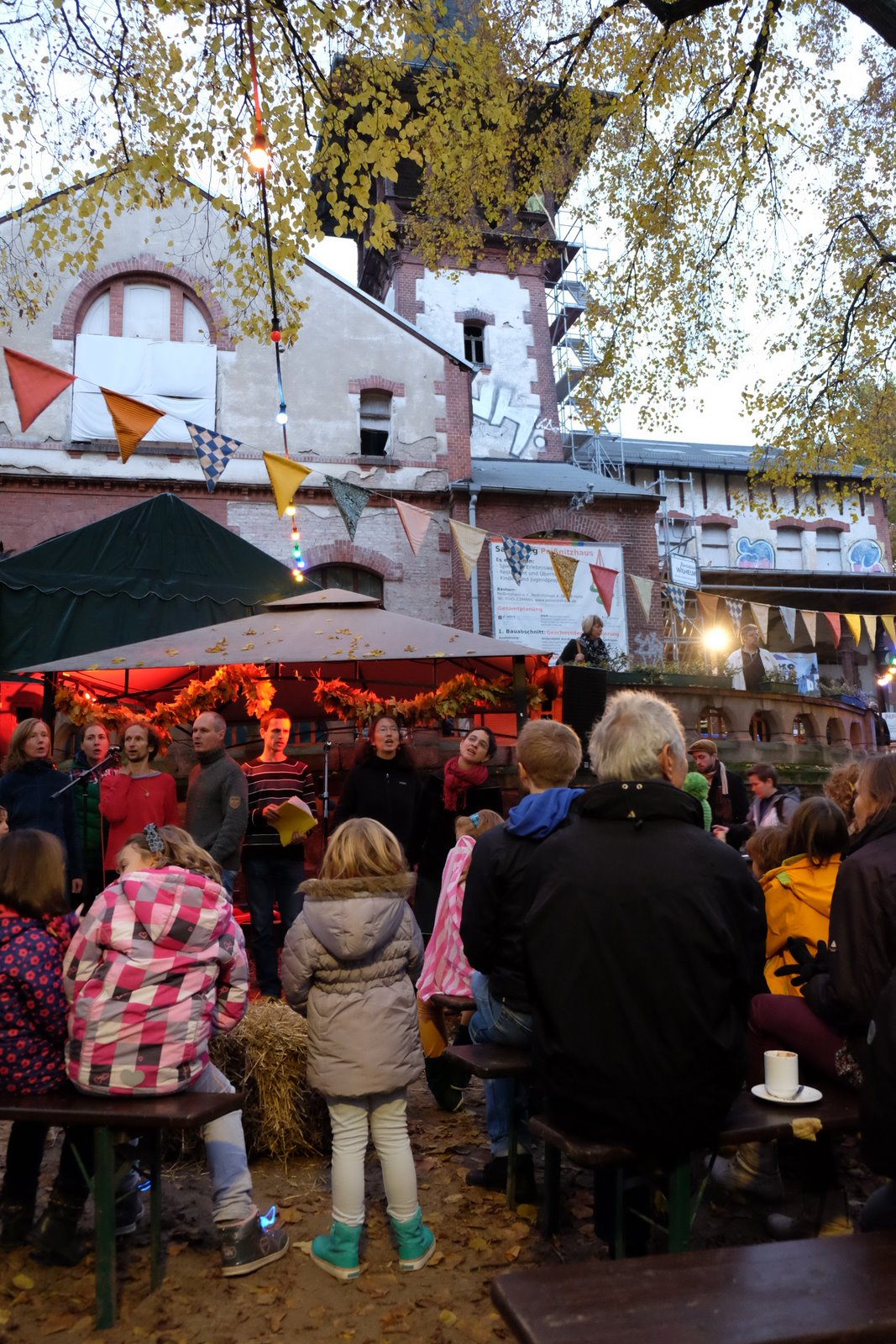The Peissnitzhaus, a historical building in Halle/Saale was abandoned between 1990 and 2013 when 17 people founded the NGO “Peißnitzhaus e.V.” The members renovated the building and founded the “Peißnitzhaus Förderkreis gemeinnützige eG” – a charitable cooperative – that offers shares of 1.000€ to support the renovation (by means of equity-ratio) and the takeover of ownership from the city. A charitable cooperative is not allowed to pay interest to its shareholders, but the it is allowed to give immaterial values worth up to 40 € (4%) to each member. The cooperative guarantees return through the payment of interest rates in the form of culture.
“The interest on these investments is culture” “
This interview is an excerpt from the book Funding the Cooperative City: Community Finance and the Economy of Civic Spaces
What is the Peißnitzhaus?
The “Peißnitzhaus”, situated on the Peißnitz-Island on the river Saale, was built as a venue for the citizens in 1893 by the City of Halle/Saale, including a restaurant, a ballroom and a beer garden. After WW1, it was reconstructed into a reformatory school. During the era of the 3rd Reich, it was used as “Jungvolkheim”; and after WW2, it was used as a culture-club for the soviet army and then as the first “Bezirks-Pionierhaus” in the former DDR from 1950 onwards. This history and the special, “Swiss country-house-style” architecture is what makes this listed heritage building unique. The location offers an area of 2000m2 indoors and 2000m2 outdoors. The house had been empty and neglected since the German reunification until 2003, when 17 people founded the “Peißnitzhaus e.V.”, a non-profit organisation now counting over 170 members.
The members began to renovate the subsidiary buildings and to revitalise the beer garden by offering cultural and educational events. Since 2010, the Foundation has been holding a rental-contract with the City Council that allows the renovation of the building and secures the funds of the foundation with a “conservation of value” agreement, ensuring that the investment of the Foundation must be repaid by the City in the case of a sale or cancellation of the contract.
How is the process of renovation organised?
We have a model through which we try to finance our daily work completely on our own, so that we do not need money from the government or from other organisations. This way, we are able to decide what we want to do freely, how we want to do it and for how long. A success for us is if people start getting active in this place, a kind of motivator for activities; and the second success is if the people come in as guests. This NGO has currently been in existence since 12 years, we are not located inside the building because we need at least 5,5 million euros to renovate the building. For the moment, we have around 1,5-2 million euros already invested in the building, so it will take some more years to finish the renovation, but the outside area has plenty of space and is already renovated with small houses to accommodate our activities. We have more than 200 cultural events a year. We have one big festival, we offer 6 different project days for school groups, especially in elementary school, mostly about environmental issues, as we are located inside a park. There we are running a beer garden, which is now so successful that with this part of our NGO we earn around 700,000 euros a year.
In what other ways do you raise funds for the renovation?
Since 2013 the foundation has been supported by “Peißnitzhaus Förderkreis gemeinnützige eG,” a charitable cooperative, that offers shares of 1,000€ which will help support the renovation by means of equity-ratio. A charitable cooperative, under German law, is not allowed to pay interest to its shareholders so the cooperative pays back through immaterial values worth up to 40 € (4%) to each of the 100 members, for example with free entrances to cultural events. In that sense, the cooperative guarantees culture and the interest is culture.
Interview with Ulrich Möbius on 7 May 2016


